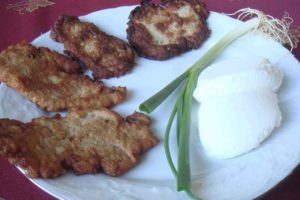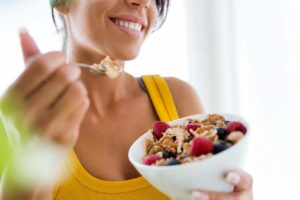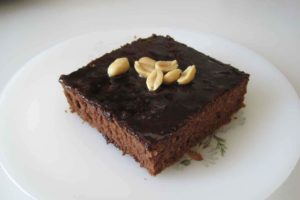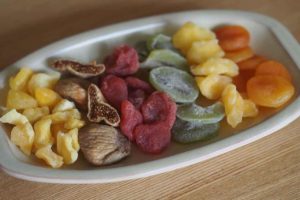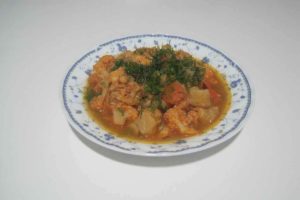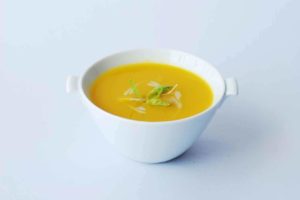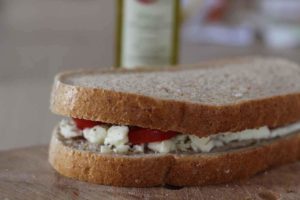In order to protect itself from the cold, our body tends to store fat during the winter. The list of the nutrients which can be easily converted into fat starts with carbohydrates. Carbohydrates are vital for our body because they provide the energy we need and they are no danger at all if we use them properly.
Good Carbs Vs. Bad Carbs
Good carbs are unrefined or unprocessed. Also, there is something called “glycemic index – GI” but no one explains what that is. GI is the ability of nutrients or carbs to boost blood sugar levels. Carbs with low or medium GI are considered good carbs, they are high in fiber as well. Legumes, bulgur, fruits, veggies and honey are in this category.
Bad carbs are refined products or foods like white flour, rice, pasta, granulated sugar, jams and jellies. Bad carbs have low glycemic index and they are easily converted into fat.
Nutrients, vitamins and minerals in the foods decrease when they refined or processed. For example, when whole-wheat flour is refined, it loses up to 80% of its vitamin B content. Vitamin B is important for the nervous system, it prevents insomnia and eases depression.
Choosing The Right Carbs In Winter
Things you should be eating; whole-wheat bread, beans, lentil, chickpeas, oats and honey.
Things you should be limiting; white bread, cake, pasta, cookies, rice, jellies and jam. Especially obese people should avoid these things.
In winter, legumes should be eaten 1-2 times a week and they must be soaked overnight and their cooking water should not be wasted.
You can choose bulgur or whole-wheat pasta instead of rice or casual pasta.
You can eat honey to your breakfast instead of adding marmalade or jam.
Potatoes contain a high amount of carbohydrates so if there are potatoes in the meal, avoid adding further carbohydrates.
Soups can be made with whole-wheat flour or bulgur instead of rice, noodle or white flour.
Weekly Winter Meal Plan To Avoid Weight Gain
Monday
Breakfast
- Toast with cheese, toast bread is made of whole-wheat bread
Lunch
- 1 serving of beans
- 1 bowl yogurt
Snack
- 1 apple
Dinner
- 1 serving leeks with olive oil (with carrot and bulgur)
- 1 bowl yogurt
Tuesday
Breakfast
- 1 bowl milk
- 4 tablespoons granola with dried fruits
Lunch
- 1 serving grilled meatballs
- 1 bowl salad
- 1 cup fruit juice
Snack
- 1 cup coffee with milk
Dinner
- 1 serving whole-wheat pasta with cheese
Wednesday
Breakfast
- 1 cup milk
- 3 dates
- 3 walnut
Lunch
- 1 bowl tuna salad
- 2 slices whole-wheat bread
Snack
- Handful of hazelnuts
Dinner
- 1 serving spinach (with carrot and bulgur)
- 1 bowl yogurt
Thursday
Breakfast
- 2 slices whole-wheat bread
- 2 slices cheese
- 1 tomato
Lunch
- 1 bowl whole grain salad
- 1 cup fruit juice
Snack
- 5 chestnuts
Dinner
- 1 serving bulgur stuffed peppers or eggplants with meat
- 1 bowl yogurt
Friday
Breakfast
- 1 cup kefir
- 10 almonds
- 5 prunes
Lunch
- 1 serving chickpeas with meat
- 1 bowl yogurt
Snack
- 1 cup hot chocolate
Dinner
- 1 serving grilled salmon
- 2 slices whole-wheat bread
- 1 bowl salad
Saturday
Late Breakfast
- Oat bran omelet (with 2 eggs)
- 2 slices whole-wheat bread
- 2 slices cheese
- 5 olives
- Arugula
- Parsley
- 1 grapefruit
- 1 tablespoon honey
Snack
- 1 cup fruit juice
Dinner
- 1 serving grilled beef
- 4 tablespoons bulgur
- 1 bowl salad
Sunday
Late Breakfast
- Spicy omelet (with 2 eggs)
- 2 slices whole-wheat bread
- 2 slices cheese
- 5 olives
- Arugula
- Parsley
- 1 orange
- 1 tablespoon honey
Snack
- 1 cup fruit juice
Dinner
- 1 serving cauliflower-broccoli-cabbage
- 2 slices whole-wheat bread
- 1 bowl yogurt
Low-Carb Salad Recipe
- 1 cup chickpeas, soaked and cooked
- 1 roasted pepper, sliced
- 1 tomato, sliced
- 1 tablespoon olive oil
- 1 tablespoon vinegar
- 5 heads dill


